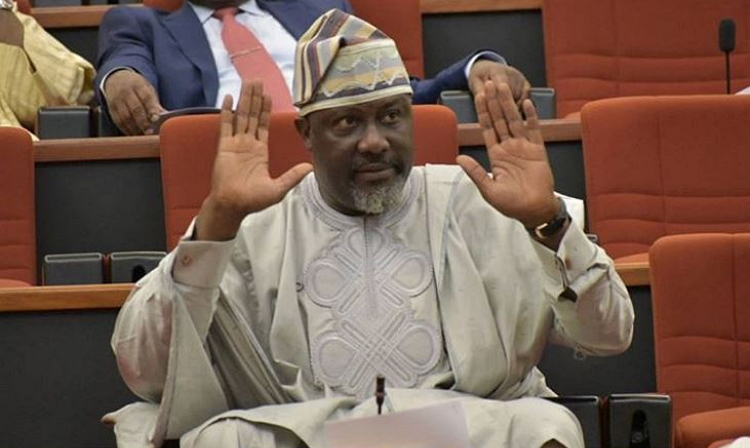The All Progressives Party (APC)-led federal government has come under attack for borrowing more in three years than the previous Peoples Democratic Party government did in 16 years.
Senator Dino Melaye, (APC Kogi) made the statement during plenary on Wednesday, March 7, as he called a Point-of-Order on the Peace Corps bill currently before the president for assent.
Melaye stated: “Without fear or favour, the Peoples Democratic Party (PDP) in 16 years, borrowed N6 trillion and this government in three years, has borrowed N11 trillion but there is no specific programme that will empower the youth.
”Also, N500 billion was earmarked for the social investment programme of the federal government but we have not seen any impact.
He has called out APC, his party for the huge amount of money it has borrowed in three years of President Muhammadu Buhari administration.
Meanwhile, the CBN governor, Godwin Emefiele, said increases in the price and shipment of oil, meant the apex bank could build its reserves to $60 billion.
Data obtained from the Central Bank of Nigeria (CBN) on Wednesday, March 7, showed the nation’s external reserves hit $43.2 billion on Tuesday, March 6, The Punch reports.
After commencing this year at $38.77bn, the foreign exchange reserves had recorded a four-year high at $42.76 billion on March 2.
This year, the foreign reserves have gained about $3.99 billion or 10.3 per cent. In December 2017, the reserves had moved from $38.77 billion to $40.69 billion in January 2018.
The foreign exchange buffer of the CBN has continued to increase recently over steady increase in global oil prices and federal government Eurobond borrowing, among others. Godwin Emefiele, the CBN governor, had projected that the reserves might hit $60 billion in 2019, if the trend persisted.
He said increases in the price and shipment of oil, Nigeria’s biggest foreign-currency earner, and improved investor confidence meant the CBN could build its reserves to $60bn over the next 12 to 18 months.
The foreign exchange buffer added $12.9 billion or nearly 50 per cent in 2017 despite the CBN weekly intervention. The apex bank steady rise in the foreign reserve, from July 7 last year, could be attributable to improved foreign exchange inflow occasioned by increase in global oil price, dollar inflow from foreign portfolio investors facilitated by the Investors and exporters foreign exchange window introduced by the CBN in April last year.
(NAN)

